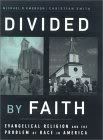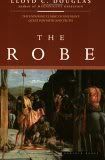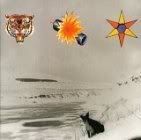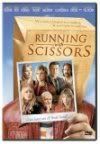 Sometimes I feel guilty because I look at my schedule and I know that I am not overburdened, and yet I will feel overwhelmed. As I beat myself up, I have wondered about this discrepancy between my actual workload and my perceived workload. I was thrilled, therefore, when reading this chapter, "The Business of Busyness" by Charles Anderson in Everyday Theology, when he identified one of the elements of our cultural busyness being a blurring of the boundaries between different areas of life. For me, this is an obvious piece of the pie; for all intents and purposes there are virtually zero boundaries between my work life and my 'other life'. Even the friendships that I have (that are close enough to break bread together) are in large part dictated by my job. Don't get me wrong - I love my job and I love my life, but I find it helpful to identify some of the limitations in order to deal with them.
Sometimes I feel guilty because I look at my schedule and I know that I am not overburdened, and yet I will feel overwhelmed. As I beat myself up, I have wondered about this discrepancy between my actual workload and my perceived workload. I was thrilled, therefore, when reading this chapter, "The Business of Busyness" by Charles Anderson in Everyday Theology, when he identified one of the elements of our cultural busyness being a blurring of the boundaries between different areas of life. For me, this is an obvious piece of the pie; for all intents and purposes there are virtually zero boundaries between my work life and my 'other life'. Even the friendships that I have (that are close enough to break bread together) are in large part dictated by my job. Don't get me wrong - I love my job and I love my life, but I find it helpful to identify some of the limitations in order to deal with them.
I also find myself on occasion trying to frantically pack activity in a day, usually panicking, feeling as if there is so much that I want to do that I will never have the time to get done. So I start a thousand projects with the best of intentions for accomplishing all sorts of great goals... and then stall, cluttering my life and my space with countless memorials of my failures of productivity, further burdening myself with guilt. Knowing the futility of this cycle (and yet still participating in it) I found a helpful tonic in Anderson's exhortation to patience.
One character trait for cultivating holy business is patience. We are a patient people because we trust that God has given us our vocation and our time, and that each is sufficient for the other. We are a patient people because we know God often takes his time in forming us. (167)
Holy Busyness. Busyness as a virtue rather than a vice. Busyness rooted not in shame, economics, or panic that there's just not enough time, but rooted instead in the gospel. "Being grounded in the gospel means that relationships - with God, others, and creation - precede activity... who we are remains primary." (165) What a beautiful and freeing thought!










0 comments:
Post a Comment